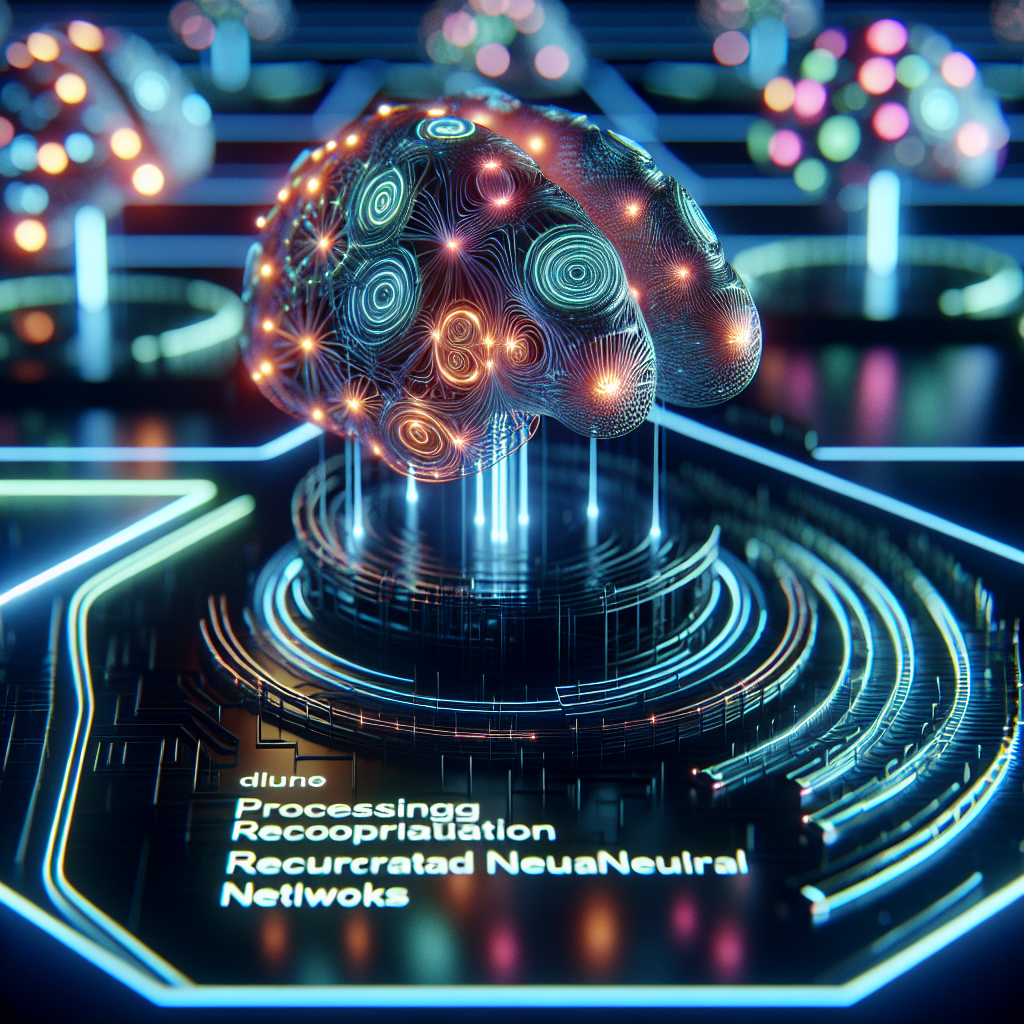Artificial intelligence (AI) has been a hot topic in recent years, with advancements in technology and a growing interest in the potential of AI to transform industries and improve our daily lives. One area of AI that has seen significant progress is recurrent neural networks (RNNs), a type of artificial neural network designed to recognize patterns in sequences of data.
RNNs are particularly well-suited for tasks that involve sequential data, such as natural language processing, speech recognition, and time series prediction. Unlike traditional feedforward neural networks, which process input data in a linear manner, RNNs have connections that loop back on themselves, allowing them to maintain a memory of previous inputs as they process new ones. This enables RNNs to capture temporal dependencies in data and make predictions based on context.
One of the key advantages of RNNs is their ability to handle variable-length sequences of data, making them ideal for tasks like language translation and sentiment analysis. RNNs have been used to develop language models that can generate coherent and contextually relevant text, as well as to create chatbots and virtual assistants that can engage in natural language conversations with users.
In recent years, researchers have made significant advancements in improving the performance and efficiency of RNNs. Techniques like long short-term memory (LSTM) and gated recurrent units (GRUs) have been developed to address the issue of vanishing gradients, which can hinder the training of deep neural networks. These improvements have led to the development of more powerful and robust RNN models that can handle complex tasks with greater accuracy and speed.
Looking ahead, the future of RNNs holds great promise for a wide range of applications. As researchers continue to refine and optimize RNN architectures, we can expect to see even more sophisticated AI systems that can understand and generate human-like language, make accurate predictions based on historical data, and adapt to changing environments in real-time.
In conclusion, recurrent neural networks are a key component of the future of artificial intelligence, enabling machines to process and interpret sequential data in a way that mimics human cognition. As RNNs continue to evolve and improve, we can expect to see exciting advancements in AI technology that will revolutionize industries and enhance our daily lives.
#Future #Artificial #Intelligence #Recurrent #Neural #Networks,rnn


Leave a Reply